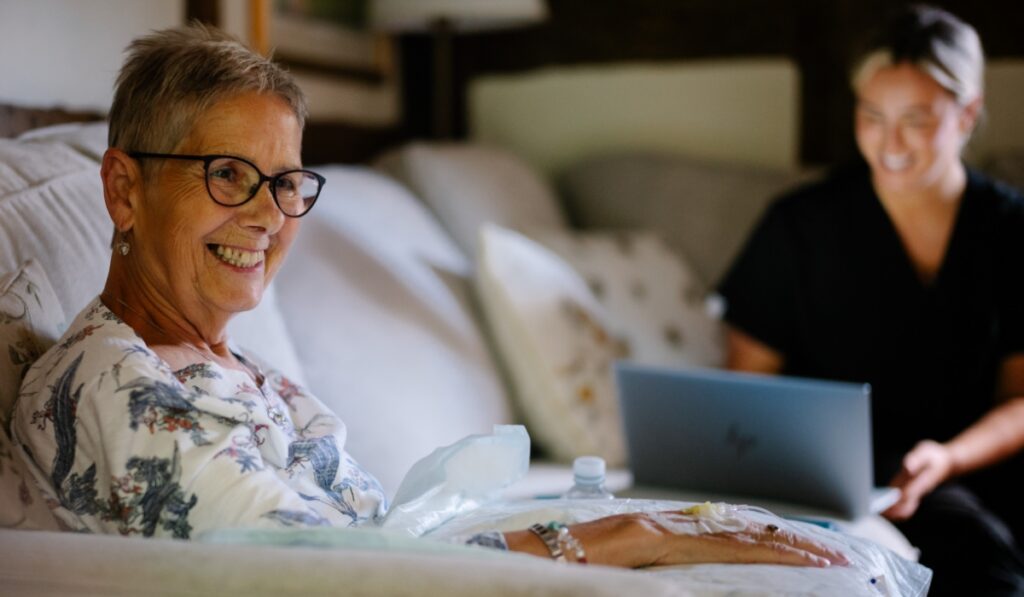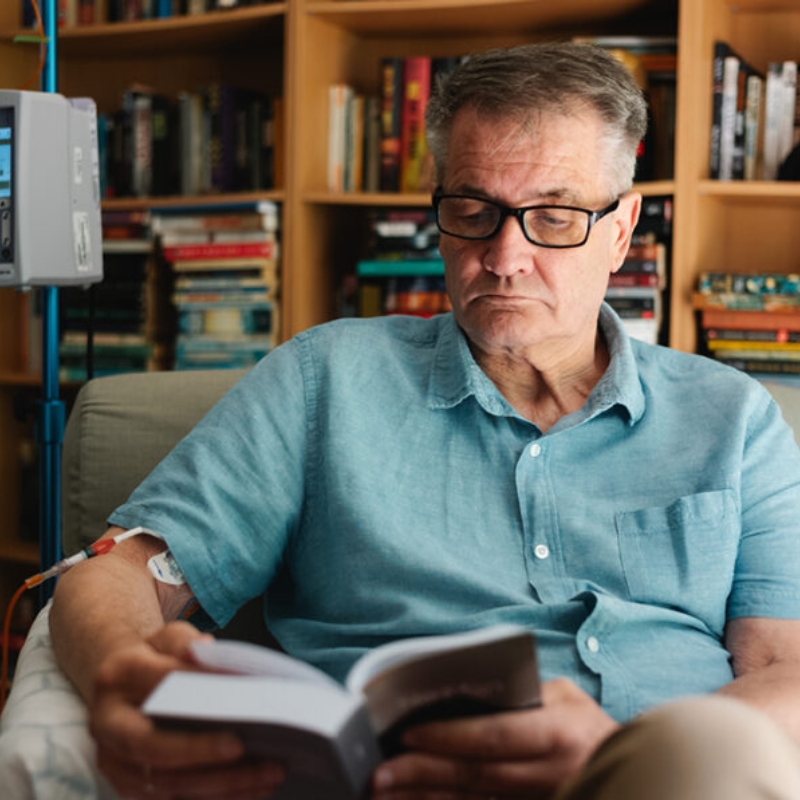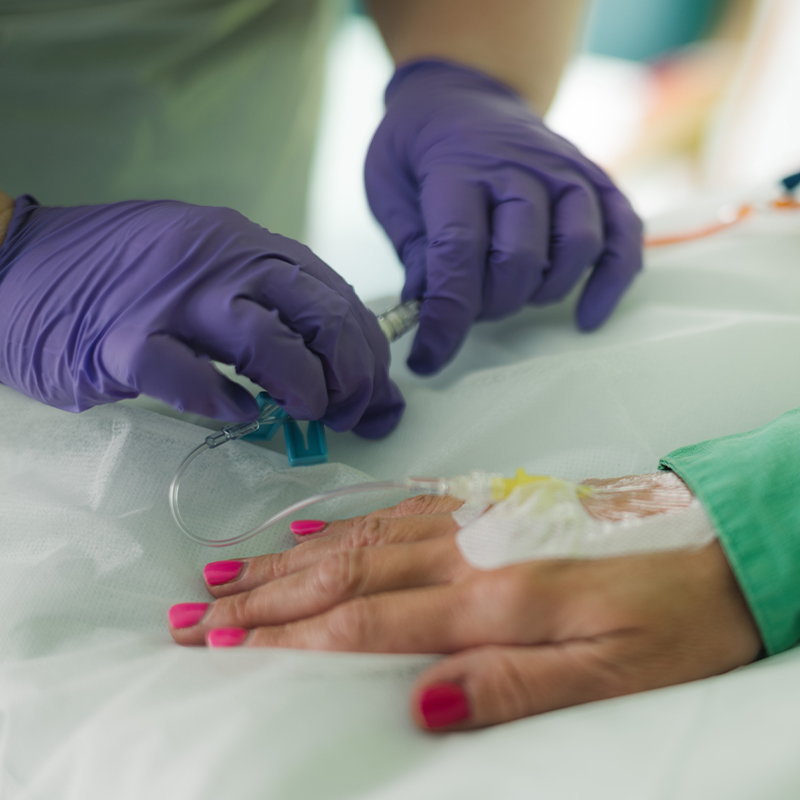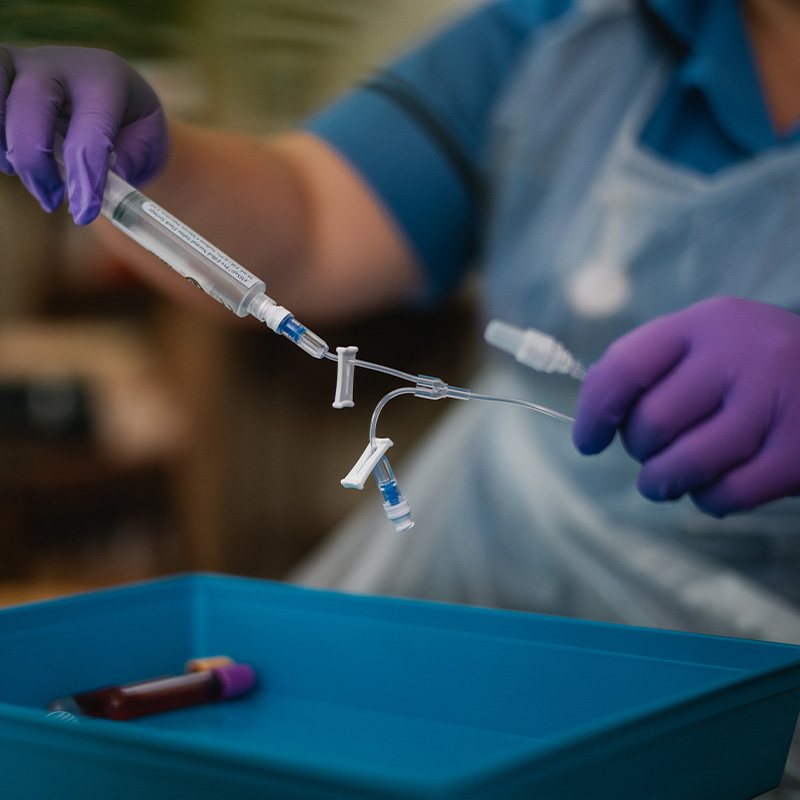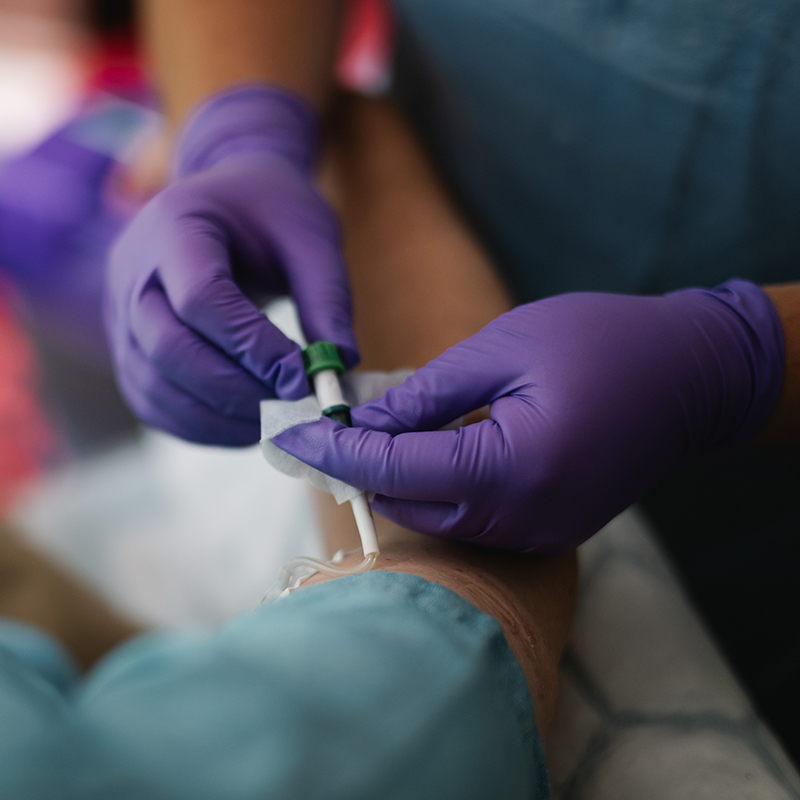Understanding the stages of skin cancer
Receiving a skin cancer diagnosis can feel overwhelming and raise many questions. Understanding the stages for skin cancer helps you make informed decisions about your treatment, your prognosis and the path forward.
This guide explains everything you need to know about skin cancer staging and grading, from early skin lesions and superficial skin cancer to more advanced melanoma skin cancer stages.
What is skin cancer staging?
Skin cancer staging is a process that helps doctors classify skin cancer based on the size and depth of the tumour, whether cancer cells have spread to nearby lymph nodes or distant organs, and the involvement of healthy skin and soft tissues. This approach, often known as the TNM system, creates a standardised way to describe your individual diagnosis for all types of skin cancer, including basal cell skin cancer, squamous cell carcinoma, and melanoma.
The TNM staging system explained
The staging system provides essential information for determining how much cancer is present and tailoring your care.
- T – Tumour: Describes the size, thickness, and local extent of the primary tumour in the skin.
- N – Lymph Nodes: Details whether cancer has spread to nearby lymph nodes, or sometimes distant lymph nodes, which is especially important for advanced squamous cell carcinoma and melanoma skin cancer
- M – Metastasis: Indicates if the cancer has spread to distant body sites and organs such as the lungs, liver, or brain.
Number staging in skin cancer
Alongside the TNM system, clinicians often use a simpler number staging:
- Stage 0 (Carcinoma in situ): Abnormal cells are contained within the uppermost skin layer (the epidermis) and have not grown deeper.
- Stage I: Small tumours, often in the top layer, that have not spread beyond the skin.
- Stage II: Larger tumours, or those showing features that increase risk factors for spread, but still localised.
- Stage III: Cancer has spread to nearby lymph nodes or adjacent skin/tissues.
- Stage IV: Cancer has spread to distant lymph nodes, organs, internal organs, or tissues.
Grading: What does it mean for skin cancer?
While stages for skin cancer tell you how far cancer has spread, grading describes how abnormal the cancer cells look under a microscope and how quickly they might grow or invade surrounding healthy skin.
- Grade 1 (Low grade/Well-differentiated): Cancer cells look fairly similar to normal cells, tend to grow slowly, and are usually less likely to spread.
- Grade 2 (Moderate grade/Moderately-differentiated): Cells are more abnormal, may grow or spread faster than normal cells, and require close monitoring.
- Grade 3 (High grade/Poorly-differentiated): Cells look very different from normal skin cells, tend to grow or spread more rapidly, and carry a higher risk of invading deeper layers, lymph nodes, or distant sites.
How is skin cancer diagnosed and staged?
Understanding your skin cancer begins with a thorough evaluation tailored to your skin condition. Here’s what typically happens:
Diagnostic Methods
- Clinical Examination: Your doctor or skin specialist will inspect for any skin lesions, suspicious moles or abnormal areas on the skin’s surface.
- Dermoscopy and Mole Mapping: Using advanced screening for skin cancer, including dermatoscopes and digital mole mapping, allows for better early detection.
- Skin Biopsy: This important diagnostic step involves taking a biopsy sample using techniques like excisional biopsy, incisional biopsy, or punch biopsy.
- Imaging Tests: For higher-risk cases, imaging tests, including ultrasound, CT, MRI scans, or PET scans, help to detect whether the cancer has spread to distant lymph nodes, deeper layers, soft tissues, or other organs.
- Lymph Node Assessment: Procedures like sentinel lymph node biopsy are vital for melanoma skin cancer to check if cancer cells have entered the sentinel nodes or nearby lymph nodes.
Understanding the importance of staging and grading
Accurate staging and grading are the foundation of cancer care for skin cancers. These steps:
- Guide the best treatment options for your specific cancer
- Predict likely outcomes, empowering you for the future
- Support ongoing care and monitoring personalised for your stage, grade and type
Your medical team will discuss staging results with you and ensure you understand what each finding means for your cancer care.
Treatment pathways by stage and grade
Your treatment depends on the cancer’s stage and grade, type of skin cancer and personal health:
- Stage 0 and Early Stage (I): Treated early, most skin cancers in the outer layer or top layer can be successfully removed. Common treatments include surgical excision, Mohs surgery, or techniques for pre-cancerous cells like photodynamic therapy.
- Intermediate to Higher-Risk Stages (II/III): Deeper or more aggressive tumours, such as squamous cell cancers or melanoma skin cancer, often require more extensive surgery, targeted therapy, or even radiotherapy.
- Advanced/Stage IV Disease: When cancer covers or spreads beyond the skin and nearby lymph nodes or to distant lymph nodes, a multidisciplinary approach is needed. This may include immunotherapy, targeted therapy, chemotherapy, or palliative treatment options.
Staging and grading are critical for tailoring treatment and determining if further treatment is needed for the best possible outcomes.
Living beyond treatment: Follow-up Care and Support
Ongoing support is crucial to monitor for recurrence, manage risk factors, and support emotional well-being:
- Regular Skin Checks: Early diagnosis and detection mean finding skin cancer or other skin conditions as soon as possible.
- Imaging and Blood Tests: Especially for higher stages, melanoma in situ, or advanced skin cancer stages.
- Lifestyle Guidance: Tips for reducing ultraviolet light exposure, recognising changes in skin tones for different skin types, and minimising further risk.
- Support Networks: Access to patient groups, psychological support, and expert resources on all skin cancers, including guidance for family members.
Your care team is committed to supporting your cancer care at every stage, from new treatments in clinical trials to ongoing advice on skin lesion monitoring and healthy skin maintenance.
Frequently asked questions about skin cancer
What is skin cancer?
Skin cancer develops when abnormal cells in the top layer or deeper layers of the skin begin to grow and divide uncontrollably, outnumbering normal cells. There are several main types:
- Non-melanoma skin cancer: This includes basal cell carcinoma, squamous cell carcinoma and other skin cancers.
- Melanoma skin cancers: Originate from skin cells called melanocytes that produce pigment. Melanoma can be more aggressive, particularly if not caught early.
What are the symptoms of skin cancer?
Most skin cancers start as changes to the skin, such as:
- A sore, lump, patch, or abnormal mole that doesn’t heal, particularly if it crusts, bleeds, itches, or changes colour or texture
- Skin lesions or new skin growths, especially in sun-exposed areas, under nails, on the palms, soles, or in the mouth
- A mole or spot that changes in size, shape, or colour, including existing moles that become asymmetrical, develop irregular borders, or increase in size
- Any abnormal cells presenting as a skin lesion, skin growth, or patch that persists
What causes skin cancer?
- Prolonged sun exposure and frequent use of tanning beds or indoor tanning
- Skin regularly exposed to ultraviolet light
- A large number of unusual types of moles
- Family history of skin cancer,
- A weakened immune system
- Age, as an increased risk, typically comes with age
- Certain rare inherited syndromes or exposure to other carcinogens
What are the treatment options for skin cancer?
Your skin cancer treatment depends on the specific type of skin cancer. Main treatment approaches include:
- Surgery: Removal of skin lesions, moles, or tumours
- Topical therapies: Medication creams, used to target abnormal cells
- Cryotherapy: Used to freeze abnormal cells or early cancers
- Photodynamic therapy (PDT): Harnesses light-activated drugs to destroy cancer cells without harming normal cells
- Radiotherapy: Sometimes considered for areas hard to operate on, or in addition to surgery for skin cancers
- Systemic therapies: Options for advanced or metastatic cases may include immunotherapy, targeted therapy, or chemotherapy.
How much does private skin cancer treatment cost?
While costs vary, the most common expenses include:
- Initial consultations to review skin lesions and skin conditions
- Biopsies and imaging to identify skin cancer or abnormal cells
- Surgery to remove basal cell carcinoma, squamous cell carcinoma, or melanoma
- Additional therapies: topical, systemic, radiotherapy, or advanced biologic drugs
Coverage depends on your private health plan. Insurance policies may help with costs for consultations, diagnostic imaging (such as for existing moles or abnormal mole detection), surgical procedures, or systemic therapies. For self-paying patients, you can set up payment plans. We encourage you to discuss all aspects with your clinical team and insurance company.
Can you get skin cancer treatment at home?
Yes, many skin cancer treatments and supportive care can be carried out safely at home.
Changing dressings and managing wounds after skin cancer surgery, with support from home-visiting nurses or clinical teams
- Application of topical treatments for certain non-melanoma skin cancers or pre-cancerous skin conditions under medical guidance
- Support for symptom management, such as pain relief, monitoring for complications, and advice tailored to skin conditions
- Ongoing remote follow-up and virtual assessment, especially for low-risk skin lesions or for patients with mobility requirements
- Emotional support, reassurance, and guidance in the comfort of your home, especially after procedures or while recovering
Having access to personalised care at home, alongside ongoing clinical support, improves comfort, convenience, and overall confidence in your skin cancer recovery.
Looking for more information?
We’ve worked with thousands of patients, and we know you’ll have a lot of questions.
If you’re ready to talk to us to discuss your options, fill out the form below and we’ll be in touch quickly.
If your enquiry is urgent please call 0345 2636 123 (England and Wales) or 0345 2636 135 (Northern Ireland and Scotland).
We know the benefits of cancer care at home
Our specialist cancer services ensure private medically insured and self-paying patients who want an alternative to hospital can start their treatment faster. We consider all cancer treatments, including those not currently available in hospitals.
